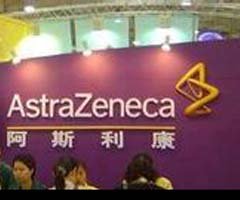Leading global biopharmaceutical firm AstraZeneca has suspended expansion in the Chinese generic drug market.
It announced adjustments on strategy for business in the Chinese mainland days ago and according to the adjustments, it will suspend investing in the generic drug market. Instead, it will invest in emerging hospitals, including small- and medium-sized city-level hospitals as well as county-level hospitals there. In addition, a production base built by it in Taizhou, Jiangsu Province, will be used for the production of its current products. With an investment of USD 230 million, the base is the biggest independent one of it in the world.
People in the circle said in an interview recently that judging from its global strategy, it still valued a power to say in all targeted fields through R&D and the generic drug policy launched in the Chinese market should be a temporary one. And provided that it attached more importance to generic drugs, it was likely to be laid behind by those including India-based Ranbaxy Laboratories.
From the end of 2011 to the start of 2012, it announced acquisition of a Guangzhou-based generic drug maker as well as a generic drug-oriented strategy for the China region in succession. Huang Bin, a top executive responsible for the development of generic drugs at it for the China region, pointed out at that time that it seized less than 20 percent share in the global generic drug market and there would be no doubt that the proportion would be raised further in the future.
However, changes took place as Pascal Soriot was nominated as new CEO of it at the end of last year. The CEO supported reference listed drugs much and at the end of April this year, Shaun Grady, vice president of it, disclosed that it had made a decision to spin off the generic drug division. David Snow, president of it for the China region, said in a letter to staff on May 9 that its BM (broad market) business division would take charge of generic drug business in second- and third-tier cities in the market while the other three generic drug business divisions would mainly focus on reference listed drugs with expired patents as well as innovate drugs. Besides, it would reduce investment in the anti-infection field.
The latest data from IMS shows that pharmaceutical market of small- and medium-sized cities in the Chinese mainland grew fast in the past few years and driven by this, more and more multinational pharmaceutical makers there attach more importance to tapping them.





